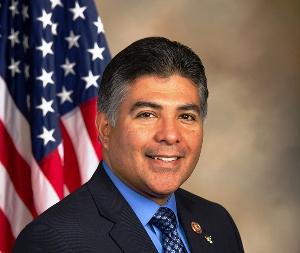For more than two decades, federal Justice grants have incentivized states to increase their prison populations. Now, it's time to do the opposite.
The 2017 International Drug Policy Reform Conference is the major biannual gathering of drug policy reformers from around the world.
Florida is slow getting out of the gate with cultivation licenses, a Georgia lawmaker is pushing to makes the state's CBD law workable, Michigan lawmakers are moving to keep dispensaries open during a year-end switch over, and more.
We've only got a couple this week, but they're both pretty juicy and involve federal law enforcement officials.
San Antonio quits arresting small-time pot violators, Houston quits prosecuting folks caught with trace amounts of drugs, Vermont begins pondering how to do pot legalization, the US chides Colombia on coca and the FARC, and more.
Nevada sets legal marijuana sales records, Quebec will go with government marijuana shops, Seattle and the state of Washington file lawsuits over the opioid crisis, and more.
The man Trump will reportedly name to head the DEA has some racial profiling issues in his past, the Global Commission on Drugs issued recommendations on dealing with the opioid crisis, the 6th Circuit slaps down the DEA in an asset forfeiture case, and more.
Atlanta is one step away from decriminalizing marijuana possession, patient advocacy and health care groups unite behind a campaign to protect the privacy of drug treatment patients, and more.
The DEA names an in-house acting administrator, the Massachusetts high court takes up the question of whether judges can order addicts to remain drug-free, Canada advances on looming marijuana legalization, and more.
It's all marijuana today, with Washington state considering personal grows, Delaware pondering legalization, Massachusetts activists trying to put the screws to towns that ban stores, and more.
This article was produced in collaboration with AlterNet and first appeared here.
Even as President Trump and Attorney General Jeff Sessions descend into a law-and-order authoritarianism that views mass incarceration as a good thing, Democrats in Congress are moving to blunt such tendencies. A bill introduced last week in the House is a prime example.

House Reverse Mass Incarceration Act sponsor Rep. Tony Cardenas (D-CA)
Last Wednesday,
Rep. Tony Cárdenas (D-CA) filed the Reverse Mass Incarceration Act of 2017 (HR 3845), which would use the power of the federal purse to reduce both crime and incarceration at the same time. Under the bill, states that decreased the number of prisoners by 7% over three years without a substantial increase in crime would be eligible for grants.
The grants would come from the Justice Department and would be awarded "to implement evidence-based programs designed to reduce crime rates and incarcerations," according to the bill text.
The measure essentially reverses the 1994 crime bill, which set up Justice Department block grant programs aimed at increasing arrests and incarceration. Instead of incentivizing states to increase prison populations, the legislation would pay states to decrease them, while keeping down crime.
Under the legislation, grants would be awarded every three years. States are eligible to apply if the total number of people behind bars in the state decreased by 7 percent or more in three years, and there is no substantial increase in the overall crime rate within the state. The bill could lead to a 20 percent reduction in the national prison population over 10 years.
Although state and federal prison populations have stabilized in the past decade and we are no longer seeing the massive increases in inmate numbers that began under Reagan and continued largely on autopilot through the Clinton and Bush years, the number of people incarcerated is still unconscionably high. With more than 1.5 million people in prison in 2015, the United States remains the world leader in incarceration, in both per capita and absolute numbers.
A healthy percentage of them are people locked up for drug offenses. The Bureau of Prisons reports that
nearly half of all federal prisoners are drug offenders. Among the states, the percentage varies between about 15% and 25%; overall,
about 17% of state prison inmates are drug offenders.
"The costs of our nation's epidemic of over-incarceration is not just metaphorical," said Rep. Cárdenas at a press conference rolling out the bill. "Yes, mass incarceration and mandatory minimums have taken their toll on our families and our communities, and represent one of the biggest civil rights issues of our time. At the same time, the cost to the taxpayer is real. Americans spend almost $80 billion per year on our prison system, in addition to much more significant long-term societal costs. It's time to right the wrongs of the last decades and help states have the freedom to implement programs that are more cost-effective and keep our streets and communities safer."
It's not just in the House. In June, Sens. Cory Booker (D-NJ) and Richard Blumenthal (D-CT) filed the Senate version of the bill, SB 1458. Both Booker and Blumenthal came out for the rollout of the House version.
"In 1994, Congress passed the Violent Crime and Law Enforcement Act, which created grant programs that incentivized states to incarcerate more people," said Sen. Booker. "The Reverse Mass Incarceration Act would do the opposite -- it would encourage states to reduce their prison populations and invest money in evidence-based practices proven to reduce crime and recidivism. Our bill recognizes the simple fact that locking more people up does little to make our streets safer. Instead, it costs us billions annually, tears families apart, and disproportionately drives poverty in minority communities."
"Our criminal justice system is in a state of crisis," said Sen. Blumenthal. "Under current sentencing guidelines, millions of people -- a disproportionate number of them people of color have been handed harsh prison sentences, their lives irreparably altered, and our communities are no safer for it. In fact, in many cases, these draconian sentencing policies have had the opposite of their intended effect. State sentencing policies are the major drivers of skyrocketing incarceration rates, which is why we've introduced legislation to encourage change at the state level. We need to change federal incentives so that we reward states that are addressing this crisis and improving community safety, instead of funneling more federal dollars into a broken system."

Senate Reverse Mass Incarceration Act cosponsor Sen. Cory Booker (D-CT)
While the bills don't have any Republican sponsors or cosponsors, they are backed by a panoply of civil rights, human rights, faith-based, and social justice organizations that are pushing hard for Congress to address mass incarceration and the class and racial disparities that underlie it.
"At a time when we have an Attorney General who seeks to continue the unwise practice of privatizing prisons and putting more and more people in them, Congress must reform our criminal justice system and do more to address mass incarceration," said Vanita Gupta, former deputy attorney general for civil rights and currently CEO of the Leadership Conference on Human Rights.
"Rep. Cárdenas, and Senators Cory Booker and Richard Blumenthal, have developed a creative policy proposal that would serve as a powerful tool to accelerate state efforts in reversing the damaging impact of mass incarceration," said Marc Morial, President and CEO of the National Urban League. "This proposal builds on smart prison-reduction policies while also reducing crime. The National Urban League applauds the lawmakers and is committed to working with them until this bill is signed into law."
That could be awhile. With Republicans in control of the Congress, the bills' prospects this session are clouded. But even among congressional Republicans, there are conservative criminal justice reformers willing to take a hard look at harsh policies of the past, and there is always the next Congress. While the Reverse Mass Incarceration Act of 2017 is unlikely to pass this year, it deserves to be fought for and is laying the groundwork for sentencing reform victories to come. Let's hope they do so soon.
back to top
The 2017 International Drug Policy Reform Conference will convene in Atlanta, Georgia on October 11-14. More than 1,500 people who believe the war on drugs has failed will be in attendance to network, to strategize and to lift up policies grounded in science, compassion, health and human rights.
Attendees will join a broad range of drug policy stakeholders -- activists, academics, healthcare and public health advocates, veterans, formerly incarcerated people, elected officials, students, and many others from around the country and across the globe!
This year, attendees will have the opportunity to spend three days deepening connections with people committed to finding alternatives to the war on drugs while participating in sessions facilitated by leading experts.
Visit http://www.reformconference.org to register. Get updates on the Reform Conference on Facebook and Twitter, and follow hashtag #NoMoreDrugWar.
back to top
Florida is slow getting out of the gate with cultivation licenses, a Georgia lawmaker is pushing to makes the state's CBD law workable, Michigan lawmakers are moving to keep dispensaries open during a year-end switchover, and more.
FloridaOn Tuesday, the state missed its own deadline for issuing growing licenses. Florida officials were supposed to distribute ten medical marijuana cultivation licenses Tuesday, but that's not going to happen. Officials said last Friday said the delay would be brief and pointed fingers at Hurricane Irma and a recently-filed lawsuit from a black farmer challenging the state's effort to achieve racial diversity among growers. That farmer charged that the state's guidelines were too restrictive.
Georgia
Last Friday, a state lawmaker was mobilizing supporters to broaden the state's CBD law. State Rep. Allen Peake (R-Macon) is calling on families and advocates to contact their legislators ahead of the upcoming legislative session to lay the groundwork for expanding the state's CBD medical marijuana law to allow limited cultivation and manufacturing in the state. The state legalized the use of CBD cannabis oil in 2013, but there is no legal way to obtain it. Peake wants to let one or two growers and manufacturers operate in the state. They would be limited to creating CBD cannabis oil.
Kentucky
Last Wednesday, a court dismissed a medical marijuana lawsuit aimed at the governor and attorney general. A lawsuit filed against Gov. Matt Bevin (R) and Attorney General Andy Beshear (D) seeking to force them to legalize medical marijuana in the state was thrown out. A Franklin circuit court judge ruled that legal precedent makes it clear that only the legislature can regulate the use of marijuana in the state -- not the executive branch and not the courts.
Michigan
Last Thursday, lawmakers moved to keep dispensaries open during the changeover to the new medical marijuana regime. As the state prepares to shift to a new regime allowing licensed dispensaries, the Department of Licensing and Regulatory Affairs has tentatively asked all existing dispensaries to shut down by December 15 and seek licenses. But some legislators have filed House Bill 5014, which would allow dispensaries to stay open while their license applications are pending before the department. A Senate version of the bill is expected to be filed shortly.
[For extensive information about the medical marijuana debate, presented in a neutral format, visit MedicalMarijuana.ProCon.org.]
back to top
We've only got a couple this week, but they're both pretty juicy and involve federal law enforcement officials. Let's get to it:
In New Orleans,
a DEA agent and a Hammond police officer were arrested Sunday on charges related to the DEA task force led by Agent Chad Scott. Task force members are accused of stealing property and thousands of dollars in drug investigations, as well as a raft of related offenses. Scott and Hammond Police Officer Rodney Gemar are accused of participating in a seven-year conspiracy to not report drug, cash, and property seizures and instead keep them for their own profit. Scott faces ten counts, including falsifying government records, obstruction of justice, perjury, conspiracy, and seeking and receiving illegal gratuities. Gemar faces six counts, including stealing evidence and conspiracy. Gemar is out on bail, but Scott was still being held after appearing in court Monday.
In Orlando, Florida, a Department of Homeland Security officer was arrested last Monday for allegedly taking bribes to help a Colombian cocaine trafficker avoid criminal charges. Special Agent Christopher Ciccione was the case agent for an organized crime and drug trafficking task force that obtained indictments for a number of Cali Cartel cocaine traffickers, but Ciccione is accused of taking a $20,000 bribe to get the indictment dismissed, then altering records and lying to federal prosecutors. He is charged with conspiracy, corruption, and obstruction of justice.
back to top
San Antonio quits arresting small-time pot violators, Houston quits prosecuting folks caught with trace amounts of drugs, Vermont begins pondering how to do pot legalization, the US chides Colombia on coca and the FARC, and more.

With moves in Houston and San Antonio, change is coming to the Lone Star State.
Vermont Marijuana Commission Begins Legalization Study. The state Marijuana Advisory Commission is holding its first meeting today. The commission is charged with studying the best way to legalize marijuana in the state. Gov. Phil Scott (R) empaneled the commission after vetoing a legalization bill in May. In his veto message, Scott said he wasn't opposed to legalization, but had concerns about underage use and impaired driving. The commission is set to report back to the legislature in January.
San Antonio to Quit Arresting People for Pot Possession. Authorities in Bexar County (San Antonio) announced Wednesday that they will no longer arrest small-time marijuana and other misdemeanor offenders, instead issuing them citations. People cited must complete a program before charges are dismissed. San Antonio now joins Harris County (Houston) and Dallas in enacting policies to no longer arrest small-time pot offenders.
Medical Marijuana
Michigan Lawmakers Seek to Keep Dispensaries Open. As the state prepares to shift to a new regime allowing licensed dispensaries, the Department of Licensing and Regulatory Affairs has tentatively asked all existing dispensaries to shut down by December 15 and seek licenses. But some legislators have filed House Bill 5014, which would allow dispensaries to stay open while their license applications are pending before the department. A Senate version of the bill is expected to be filed shortly.
Law Enforcement
Houston Stops Prosecuting Cases of Trace Amounts of Drugs. Harris County (Houston) District Attorney Kim Ogg has quit pursuing thousands of "trace drug" cases, where people are charged with drug possession based on drug residues left in baggies or syringes. Ogg actually quietly implemented the policy in July, but has gone public with it now. The move will save the county the cost of prosecuting somewhere between 2,000 and 4,000 felony cases each year.
Sentencing
New House Bill Creates Incentives to Reduce Crime, Incarceration at Same Time. Rep. Tony Cardenas (D-CA) filed the Reverse Mass Incarceration Act of 2017 on Wednesday. Companion legislation, Senate Bill 1458, was filed in June by Sens. Cory Booker (D-NJ) and Richard Blumenthal (D-CT). The bill would essentially reverse the 1994 crime bill, which provided incentives to states to increase prison populations. It would instead pay states to decrease incarceration rates through incentivizing grants.
International
US Ambassador to Colombia Says FARC Has Not Complied With Peace Deal. "The FARC have not complied, in my opinion, with their obligations under the agreement," US Ambassador to Colombia Kevin Whitaker said during a recent interview with El Tiempo. Whitaker claimed the leftist rebels continued to encourage coca cultivation in some parts of the country and said they should not be involved in government-sponsored crop substitution programs. Whitaker's comments are in line with other US officials, who have become increasingly critical of the peace deal between the FARC and the government as coca and cocaine production have increased in the past two years.
Philippines Claims It Doesn't Allow Extrajudicial Killings in Drug War. In a statement released as Foreign Affairs Secretary Alan Peter Cayetano met in Washington with Secretary of State Rex Tillerson, the Philippines government denied it had a policy of killing suspected drug users and dealers. "Contrary to media reports, Cayetano also clarified to Tillerson that the Philippines does not have a state policy allowing extrajudicial killings, especially of illegal drug suspects," the statement read. The statement also welcomed further cooperation with Washington and reiterated the "seriousness" of the country's "drug problem." Thousands of people have been killed since President Duterte unleashed his drug war, but the Philippines claims it only kills suspects who were violently resisting arrest.
back to top
Nevada sets legal marijuana sales records, Quebec will go with government marijuana shops, Seattle and the state of Washington file lawsuits over the opioid crisis, and more.

If you want to buy legal marijuana in Quebec, a government employee will sell you it. (Sandra Yruel/DPA)
Nevada Legal Sales Begin at Blistering Pace. Pot shops sold $27.1 million worth of products during July, the first month of legal sales in the state. That's nearly double what Colorado and Washington did in their first month of sales and nearly seven times what Washington did. And the state collected a cool $10.2 million in industry fees and taxes.
Rhode Island Appoints Members of Legalization Commission. The state has announced the naming of 19 members to the special legislative commission charged with studying the effects of potential marijuana legalization. The commission is the result of a bill passed by the legislature after legalization efforts fell short earlier this year. It will conduct a comprehensive review, study social and fiscal impacts, and make recommendations regarding pot policy.
Medical Marijuana
Georgia Lawmaker Mobilizes Supporters to Broaden State's Law. State Rep. Allen Peake (R-Macon) is calling on families and advocates to contact their legislators ahead of the upcoming legislative session to lay the groundwork for expanding the state's CBD medical marijuana law to allow limited cultivation and manufacturing in the state. The state legalized the use of CBD cannabis oil in 2013, but there is no legal way to obtain it. Peake wants to let one or two growers and manufacturers operate in the state. They would be limited to creating CBD cannabis oil.
Heroin and Prescription Opioids
Seattle, State of Washington Sue Opioid Manufacturers. The city and the state announced Thursday that they have filed two lawsuits against major drug companies they say fueled the opioid crisis by downplaying the risk of addiction with popular opioid pain pills. The city is suing Purdue Pharma, Teva Pharmaceuticals, Johnson & Johnson and Janssen Pharmaceuticals, among several others. The state named only Purdue, the maker of OxyContin, as a defendant. The state has seen a 60% increase in opioid-related hospitalizations between 2009 and 2014 and about 10,000 opioid overdose deaths since 2000.
International
Quebec Premier Sets Legal Pot Age at 18, Orders State Monopoly on Sales. Quebec Premier Philippe Couillard decided Thursday that the legal age for marijuana consumption in the province would be 18 and that the distribution and sale of marijuana will be under the control of the state. The province will create a crown corporation relying on the expertise of its alcohol regulators, the Société des alcools, to set up and run the system. Ontario, Canada's most populous province, has also opted for government monopoly pot shops, much to the dismay of entrepreneurs and some consumers.
back to top
The man Trump will reportedly name to head the DEA has some racial profiling issues in his past, the Global Commission on Drugs issued recommendations on dealing with the opioid crisis, the 6th Circuit slaps down the DEA in an asset forfeiture case, and more.

The next DEA head? New Jersey State Police Superintendent Joseph Fuentes (Wikimedia)
Florida Will Miss Deadline for Issuing Grower Licenses. Florida officials were supposed to distribute ten medical marijuana cultivation licenses Tuesday, but that's not going to happen. Officials said last Friday said the delay would be brief and pointed fingers at Hurricane Irma and a recently-filed lawsuit from a black farmer challenging the state's effort to achieve racial diversity among growers. That farmer charged that the state's guidelines were too restrictive.
Heroin and Prescription Opioids
Global Commission on Drug Policy Releases Position Paper on North America Opioid Crisis. The Global Commission on Drug Policy Monday released a position paper on The Opioid Crisis in North America. The members of the Global Commission, several of whom faced similar crises while occupying the highest levels of government, share their views and recommendations on how to mitigate this epidemic. The Commission warns against cutting the supply of prescription opioids without first having supporting measures in place, and emphasizes the need to improve and expand proven harm reduction services and treatment options, including opioid substitution therapy and heroin-assisted treatment. Regulation of prescription opioids needs to become well-balanced to provide effective pain care while minimizing misuse. The Global Commission also calls for the de facto decriminalization of drug use and possession for personal use at the municipal, city or State/Province levels, so that people in need of health and social services can access them freely, easily, and without fear of punishment. Finally, the Global Commission suggests allowing pilot projects for the responsible legal regulation of currently illicit drugs including opioids, to bypass criminal organizations that drive and benefit from the black market.
Asset Forfeiture
6th Circuit Slaps Down DEA Cleveland Airport Cash Seizure. Even when it looks like they have the perfect case, the DEA and the courts can't cut corners in their efforts to seize suspected drug money, the court held in a case decided late last month. Agents had seized $41,000 in cash from two men with previous drug convictions who had purchased tickets to -- gasp! -- California, and their drug dog told them the money was tainted. The men appealed the seizure, saying the cash was legally obtained, but the DEA moved to strike their claim, saying they had provided no proof, and a lower court agreed. But the DEA and the lower court erred, the appeals court ruled, by shifting the burden of proof to the claimants at that early stage of the proceedings: "Finally, we note our concern that the government's approach would turn the burden of proof in forfeiture actions on its head. Under the Civil Asset Forfeiture Reform Act of 2000 (CAFRA), the government bears the burden of proving by a preponderance of evidence that the subject of a civil forfeiture action is, in fact, forfeitable," the opinion concluded. "Requiring a forfeiture claimant to explain the nature of his ownership at the pleading stage would be asking the claimant to satisfy the government's burden of proof, or at least go a long way toward doing so."
Drug Policy
Trump Could Name Racial Profiling Apologist to Head DEA. The Washington Post has reported that President Trump will name New Jersey State Police Superintendent Joseph Fuentes to head the Drug Enforcement Administration (DEA). In 2000, Fuentes, then a state police trooper, wrote a paper defending "suspect profiling" as the state was embroiled in controversy over "driving while black" and police tactics like asking hotel clerk to report guests who were "suspicious" because they had dreadlocks or spoke Spanish. "Because of the disproportionate involvement of minorities in these... arrests, civil rights groups have branded the whole process of highway drug enforcement as racist," he wrote. But when pressed during his nomination to head the state police, Fuentes disavowed that position and denied being an apologist for racial profiling.
back to top
Atlanta is one step away from decriminalizing marijuana possession, patient advocacy and health care groups unite behind a campaign to protect the privacy of drug treatment patients, and more.

It was a 15-0 vote for marijuana decriminalization in the Atlanta city council chambers Monday.
Delaware Panel Meets Again This Week, Has Issues. The state task force charged with examining issues around the legalization of marijuana is set to meet again on Wednesday. Members said that before legalization could occur, several issues would have to be addressed, including public and workforce safety, taxation and banking rules, insurance and liability issues, and concerns about the long-term effects of marijuana use.
Massachusetts Regulators Urged to Avoid "Walmart of Weed" Situation. State pot grower advocates urged regulators Monday to institute a tiered licensing system for marijuana cultivation to avoid out-of-state corporate control of the state's legal pot crops. Peter Bernard, president of the Massachusetts Grower Advocacy Council, said a 1 million square foot grow facility being funded by "Colorado money" makes his "New England blood boil" because it could signal that locals will be shut out in the nascent industry. Instead of a "Walmart of Weed" approach, Bernard said, the state should encourage craft cooperatives. "Craft cooperative grows will provide that top shelf product that commands a top shelf price, much like a fine bottle of wine commands a higher price than box wine. Only the tourists and occasional tokers will waste their money on Walmart Weed," he said in testimony reported by MassLive.
Atlanta City Council Unanimously Approves Decriminalization Ordinance. The city council voted 15-0 Monday to decriminalize the possession of up to an ounce of marijuana. The mayor now has eight days to sign or veto this bill. If the mayor does not act, the ordinance becomes law. State law allows for up to six months in jail for pot possession, but the Atlanta ordinance would limit punishment to a $75 fine.
Heroin and Prescription Opioids
As Opioid Crisis Rages, Campaign to Protect Patients' Privacy Rights Launched. More than a hundred of the nation's leading patient advocacy and health care organizations have launched the Campaign to Protect Patient Rights to advocate for maintaining the confidentiality of substance abuse disorder patients. The campaign comes as moves are afoot to eradicate existing protections in a misguided bid to address the crisis. Under federal substance abuse disorder confidentiality rules, treatment providers are barred from disclosing information about a patient's drug treatment without his or her consent. Proposals to replace those rules with the more relaxed HIPAA standards "would not sufficiently protect people seeking and receiving SUD treatment and could expose patients to great harm," the groups said.
back to top
The DEA names an in-house acting administrator, the Massachusetts high court takes up the question of whether judges can order addicts to remain drug-free, Canada advances on looming marijuana legalization, and more.

Voters in Fairbanks and other Alaska towns rejected bans on commercial marijuana operations Tuesday. (Flickr)
Alaska Towns Reject Marijuana Bans. Voters in Fairbanks and several towns on the Kenai Peninsula south of Anchorage rejected bans on commercial marijuana growing operations in local votes on Tuesday. The state legalized marijuana in 2014.
California Governor Signs Bill Making Smoking Pot While Motoring a $70 Ticket. Gov. Jerry Brown (D) on Monday signed into law a bill barring the use of marijuana or marijuana products while driving or riding in a motor vehicle. The maximum penalty is a $70 fine. But drivers who operate while impaired could still be nailed for that.
Hemp
Farm Bureau Endorses Federal Hemp Bill. The American Farm Bureau Federation has formally endorsed the Industrial Hemp Farming Act, House Resolution 3530, which would exclude industrial hemp from the Controlled Substances Act definition of marijuana.
Law Enforcement
DEA Veteran Named Acting Administrator. The Justice Department has named veteran DEA official Robert Patterson as acting administrator of the agency. He has been DEA's principal deputy administrator since last November, where he oversaw all of the agency's enforcement, intelligence, administrative, and regulatory activities worldwide. He is the highest ranking career special agent at DEA.
Massachusetts Court Ponders Whether Courts Can Require Addicts to Remain Drug-Free. The state's Supreme Judicial Court heard arguments Monday on whether judges can require people under their supervision who suffer from substance use disorder to remain drug-free. The case involves a woman who was sent to jail for failing a drug test while on probation for a larceny charge, but has large implications for how judges in the state deal with drug-using defendants. A decision in the case is expected around year's end.
International
Canadian Prime Minister Proposes 10% Marijuana Excise Tax. Prime Minister Justin Trudeau has proposes an excise tax on retail marijuana sales of $1 for sales of up to $10, and 10% on sales over that amount. Provinces and territories would receive half the revenues under the proposal he made Tuesday, but some provinces argue that isn't enough. Trudeau responded that the details are still open to negotiation.
Alberta Proposes Minimum Age of 18 for Pot Use. The Alberta provincial government's draft plan for marijuana legalization sets the minimum age at 18. The province says it hasn't yet decided on whether to have government-run or private sales. The draft proposal also includes provisions for use in public areas where smoking is allowed and sets a public possession limit of 30 grams.
back to top
It's all marijuana today, with Washington state considering personal grows, Delaware pondering legalization, Massachusetts activists trying to put the screws to towns that ban stores, and more.
Marijuana PolicyDelaware Marijuana Task Force Meets, Hears Concerns. The state's Adult Cannabis Use Task Force met for the second time Wednesday and heard from the Department of Safety and Homeland Security. The department unsurprisingly wants strict regulations on marijuana if legislators decide to legalize it. Homeland Security Director John Yeomans said the department was against allowing personal cultivation because it could lead to a "grey market" and edibles should not be allowed because they could appeal to kids. The Chamber of Commerce also weighed in, expressing concerns about workplace injuries, unemployment claims, and how impairment would be defined. The task force will continue to meet on a monthly basis for the rest of the year and then make policy recommendations.
Massachusetts Advocates Say Towns With Pot Bans Shouldn't Enjoy Pot Tax Revenues. Pro-legalization advocates are working on a bill that would prevent towns that ban commercial marijuana operations from collecting a share of marijuana tax revenues. The Massachusetts Recreational Consumer Council is talking to legislators about the proposal, which comes as more than a hundred municipalities in the state have enacted bans, moratoria, or other tough restrictions on pot businesses. "Any sensible person would agree, why should you get tax money if you don't have it in your town, it just doesn't make any sense," council vice-president Kamani Jefferson said in remarks reported by the Daily Free Press. "I think it will catch on even to the people who may not be in love with marijuana. If you don't put any work in, you shouldn't get any benefits is what we're really proposing to the Commonwealth."
Washington Regulators Get Earful at Hearing on Allowing Personal Cultivation. A three-member panel of the state Liquor and Cannabis Board held a hearing Wednesday on allowing home grows in the only legalization state that doesn't allow them. Most of the three dozen people who testified support home cultivation, but not the options being studied because they have too many restrictions and allow localities to ban personal grows even if legalized in the state. The panel must issue a report with recommendations to the legislature by December 1.
International
Canada Legalization Bill Sheds Language Restricting Plant Height. The Commons Health Committee on Tuesday scrapped a clause in the bill that would have made growing a plant taller than one meter a criminal offense. The provision had been criticized as arbitrary and difficult to enforce, with even the Ontario police and corrections ministry noting that "people could be criminalized for small amounts of overproduction." Others pointed out that someone could have a legal plant, go on vacation for a couple of weeks, and come back to an illegal plant. The limit of four plants per household remains intact, though.
back to top











